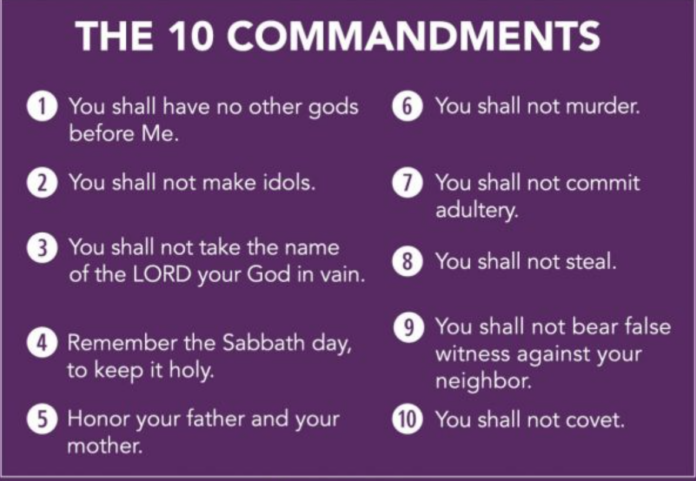A federal judge in Louisiana has blocked a law that would have required public schools to display the Ten Commandments in classrooms by January 1, 2025.
Judge John W. deGravelles, appointed by former President Barack Obama, ruled that the mandate violates the First Amendment by interfering with religious freedom.
DeGravelles stated in his 177-page ruling that the law is “unconstitutional on its face and in every application,” barring Louisiana’s attorney general and other officials from enforcing it.
The ruling mandates that state officials inform all public schools that they are not required to follow the new law.
Louisiana Attorney General Liz Murrill, a Republican, expressed her dissatisfaction with the decision, saying, “We strongly disagree with the court’s decision and will immediately appeal.”
The appeal would go to the 5th U.S. Circuit Court of Appeals in New Orleans, a court known for its conservative leanings.
The blocked law, known as House Bill 71, was signed into effect by Louisiana Governor Jeff Landry in June.
Under the law, schools would have had to display posters of the Ten Commandments in classrooms, with the Commandments as the “central focus,” printed in a large, legible font.
This would have made Louisiana the only state in the U.S. with such a requirement.
For many conservative groups, this law is part of a broader movement to restore religious symbols and expressions in public spaces, including schools.
President-elect Donald Trump has also expressed support for reintroducing religious practices, such as prayer, back into schools.
In his decision, Judge deGravelles referred to a 1980 U.S. Supreme Court ruling that struck down a similar law in Kentucky, highlighting that Louisiana’s law directly conflicts with this precedent.
He argued that displaying the Ten Commandments in classrooms forces students to encounter the state’s preferred religious teachings every school day, creating a “captive audience.”
“Each of the plaintiffs’ minor children will be forced in every practical sense, through Louisiana’s required attendance policy, to be a ‘captive audience,'” deGravelles stated.
He also questioned whether there is any constitutional way to implement the Louisiana law, concluding, “In short, the court finds that there is not.”
Nine families filed a lawsuit against the law just five days after it was signed.
The plaintiffs represent various religious beliefs, including Unitarian Universalists, Jewish, Presbyterian, atheist, and nonreligious families.
One of the plaintiffs, Darcy Roake, a Unitarian Universalist minister, voiced concerns over the law’s infringement on religious freedoms.
“As an interfaith family, we expect our children to receive their secular education in public school and their religious education at home and within our faith communities, not from government officials,” Roake said.
The plaintiffs argue that the government has no right to impose religious teachings on children who attend public schools.
Some conservatives, however, are hopeful that the U.S. Supreme Court, with its current conservative majority, would uphold laws similar to Louisiana’s.
The Supreme Court ruled in favor of a Washington state high school football coach in 2022, who argued for his right to pray on the field with players after games.
DeGravelles, however, noted that Louisiana’s Ten Commandments law does not align with the same ruling.
He argued that the state does not have a historical or “broader tradition” of using the Ten Commandments as part of its public school system.
The case, titled Roake et al v. Brumley et al, is filed in the U.S. District Court, Middle District of Louisiana, No. 24-00517.
As the battle over religious expression in schools continues, Louisiana’s decision to appeal will be closely watched by both conservative and liberal groups across the country.

